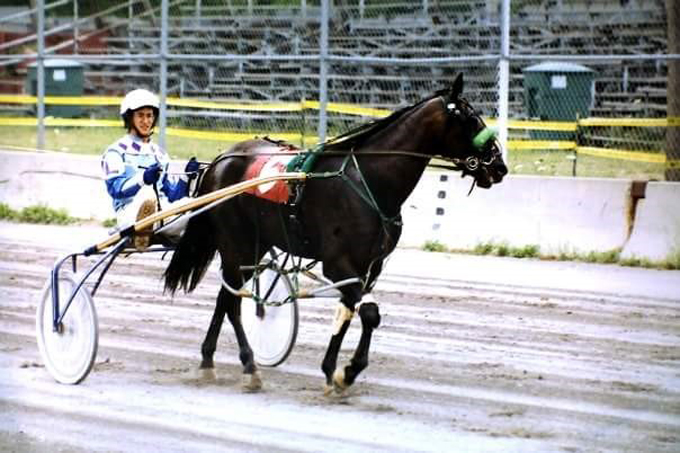
Does reading ability determine our future success? And if so, by whose standard?
Days after the Kentucky Derby, I think back to my experience working as a groom at various harness (horse) race tracks and as an aspiring driver at Morrisville State College in New York. My day at the track typically started at 6:00 a.m. (many others arrived before 5:00 a.m.). Before noon, my three to five horses would be fed, harnessed, jogged, bathed, and wrapped. And I would be exhausted. Depending on the race day, we might have a few hours in the afternoon to relax, if we didn't ship to another track or race a matinee card. Usually, the afternoon carried another set of responsibilities, leaving little time to read.
When I did read, I would peruse weekly racing recap magazines, such as Times in Harness or The Horseman at the tack shop, but nothing that substantiated sustained reading. Did I squander an opportunity? I had the ability to read. I could read fluently, comprehend, and interpret. Yet I abstained, whether by choice or circumstance. Did I choose not to read, with what little spare time I had?
Many backstretch workers I spent time with didn’t have that luxury. Such souls, some of the kindest and craftiest people I’ve ever met, faced the stark reality of illiteracy, where career mobility didn’t exist. For those men and women, working with horses provided security in a world where no security could be found without the ability to read.
One elderly man I worked with had a magnificent touch with horses. He could calm a horse and tend to each one like his own child. He could also fix every part of my Plymouth Reliant. But he could never train a horse. Like several others we worked with, he couldn’t read the regulations for licensure, condition sheets, or stall applications, let alone a newspaper. They survived on hands-on knowledge and intellect.
The gentleman made enough money to scrape by, just like the rest of us (In 1996, that was $250 a week, with housing provided). When we had time, sitting on track trunks along the shedrow, he'd express why we needed to go back and finish college. He regretted his inability to read.
Years ago, I worked with a young teenager who loved harness racing. As I watched him move through the grades, I noticed that he struggled to acquire reading skills, whether in class or specialized interventions. But he loved his race horses. He could tell you every detail on every horse and he could critique a horse’s performance on par with a professional handicapper or horseman.
Eventually, he faced a challenge. He could only work at the track if he improved his grades. By the time he was old enough to drive, he had enough literacy capacity—gained primarily through the language of the track and the pressure to pass his classes—to be successful and to earn a living at the track. However, the idea of reading a book for pleasure was a foreign concept. He became what I call a "functional reader": one who reads to survive or succeed in a career field, but not by choice or for pleasure.
Consider our schools and classrooms, our pressures and expectations. Do students really only need to achieve reading competency during school, or is recreational reading essential to one’s overall quality of life?
Reading is not a possession or an affirmation, but a gift that each of us must extend to our peers—young or old, rich or poor. We need to extend our purpose, not just to make functional readers, but to encourage reading that inspires, empowers, and connects. After all, literacy is empathy.
Every summer I spend six weekends at Saratoga Race Course. Sitting in the clocker’s booth alongside the Oklahoma Training Track, I wonder, how often do grooms read? If so, can they read in English? Are they bound to the track because they do not have the basic literacy skills needed to “make it” outside of the horse world? This always causes me to pause. Then, I realize, I don't teach for competency via a state test, grade, or reading level. I teach students to own reading as a part of their lives, so that they never have to wonder what could have been.
If I am lucky enough, I will return the track and teach those who want a second chance at literacy.
Justin Stygles is a fifth-grade teacher in Wiscasset, Maine. He's taught for 15 years in various settings. You can follow him on Twitter at @justinstygles.